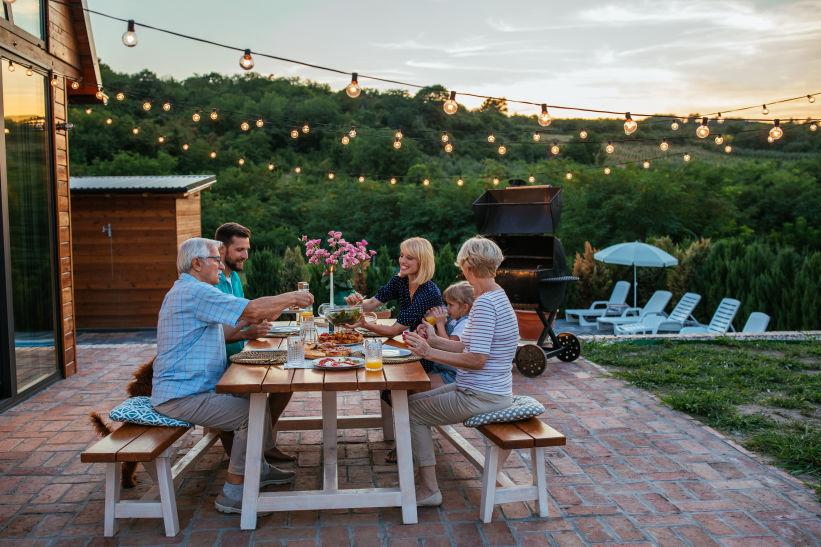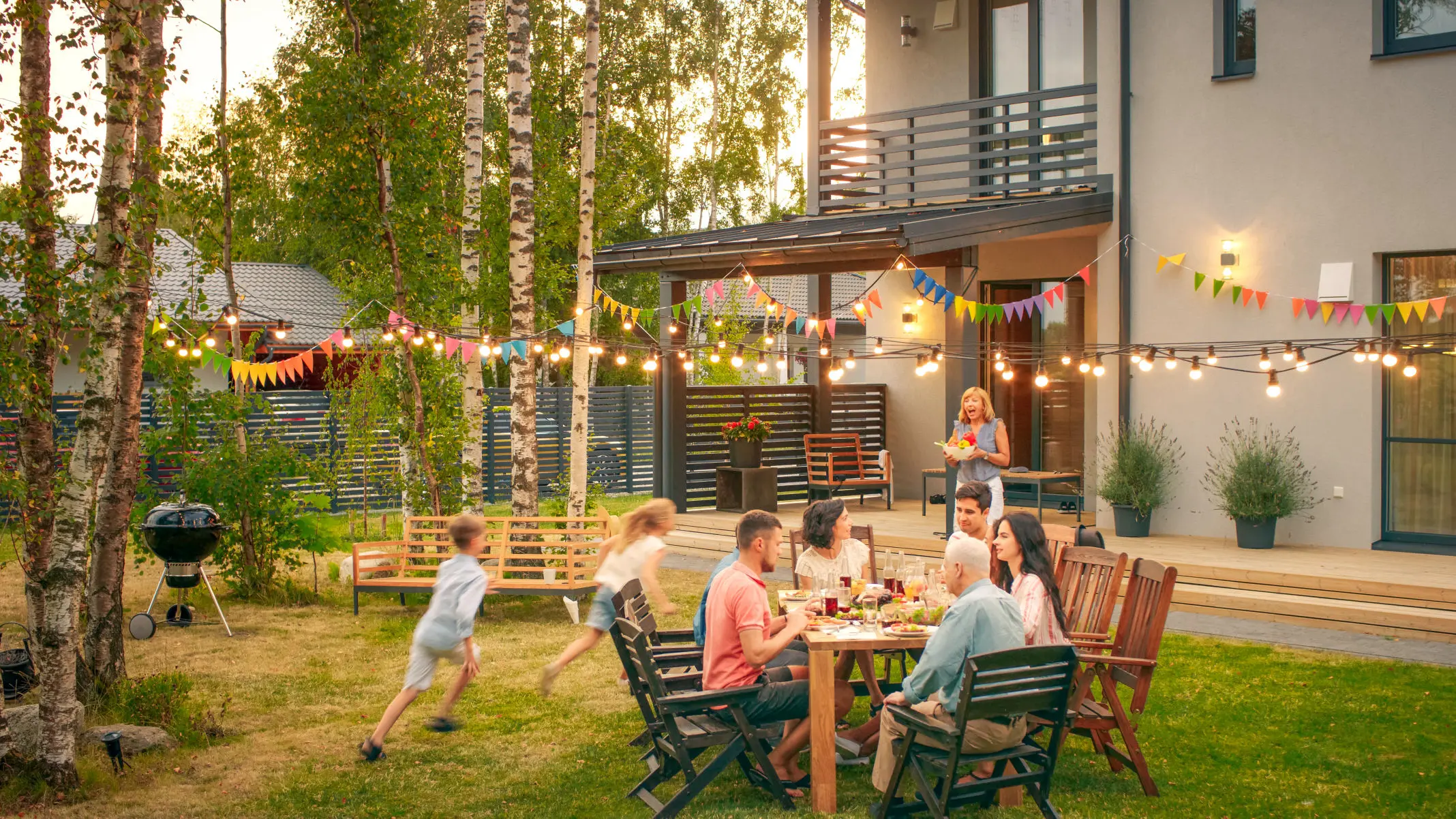


With your $174,000 annual compensation as a physician assistant at Memorial Hospital of Converse County, you'll experience remarkable financial advantages in Cheyenne compared to metropolitan locations. While this salary might only cover basic expenses in cities like Boston or San Francisco, in Cheyenne it creates genuine financial freedom and accelerated wealth-building potential. With a cost of living index of 91.7, your money stretches further—equivalent to earning $188,452 in an average U.S. city.
Cheyenne offers dramatic housing cost advantages. With a housing cost index of 97.7, your $174,000 salary affords a high-quality lifestyle. The median home price of approximately $310,000 means you can own a beautiful home while spending far less of your income on housing.
Cheyenne’s overall affordability extends to day-to-day expenses. Groceries, utilities, transportation, and dining all cost less than in most metropolitan areas, creating meaningful savings every month that contribute to long-term financial health.
Cheyenne’s compact layout and light traffic yield major transportation savings. With average commute times under 15 minutes, you save both time and money, while reduced vehicle wear extends the life of your car.
As a healthcare provider, you’ll enjoy personal savings on medical costs. Health, dental, and vision premiums are lower than national norms, and professional courtesy discounts further reduce expenses.
Wyoming’s no-income-tax structure offers substantial take-home pay boosts and long-term planning advantages. Compared to states like California or New York, you retain significantly more of your salary each year.
Cheyenne’s cost structure allows you to enjoy discretionary expenses that may feel out of reach elsewhere. Dining, entertainment, travel, savings, and personal hobbies become financially feasible and fulfilling.
To illustrate the financial potential in Cheyenne, here’s a sample monthly budget based on your $174,000 salary:
This scenario shows how your salary supports both immediate comfort and long-term financial growth—making Cheyenne an ideal location for balancing professional goals with personal well-being.
Cheyenne's housing market offers a refreshing combination of affordability, quality, and appreciation potential. With a median home price of $310,000—well below the national average of $390,000—your $174,000 salary affords exceptional purchasing power. Many relocating professionals find they can buy homes that would cost two to three times more in cities like Denver, Seattle, or Boston. This affordability fosters lifestyle upgrades and long-term wealth building through property appreciation.
Cheyenne features distinct neighborhoods with their own charm. Lakeview/Hillsdale offers early 20th-century homes near the hospital. Saddle Ridge and Thomas Heights on the east side feature newer construction and community amenities. Harmony Valley on the north side provides suburban comfort and school proximity.
Building a custom home in Cheyenne is affordable and realistic. Developments like Saddle Ridge Estates and Whitney Ranch offer high-quality construction with modern features at prices starting in the mid-$300,000s. Custom home builds typically cost $175–$225 per sq ft, 30–40% less than metro markets.
Cheyenne's luxury market provides upscale homes at a fraction of metro prices. Areas like Hilltop Lane and Western Hills Estates feature homes with gourmet kitchens, large master suites, and elegant finishes. With your income, luxury homes remain within comfortable reach.
Renting before buying is easy in Cheyenne. Upscale apartments with modern amenities rent for $1,200–$1,800/month. Single-family homes are widely available at $1,800–$2,500. The market is pet-friendly and supportive of medical professionals needing short-term or executive housing.
In Cheyenne, you never have to choose between home comfort and commute time. Most neighborhoods are within 10–15 minutes of the hospital. Even rural properties with acreage are under 25 minutes from downtown. This accessibility enhances work-life balance and reduces stress.
Cheyenne real estate is not just livable—it's investable. Appreciation rates of 5–7% annually have held steady. Rental demand from military personnel, government workers, and professionals supports strong cap rates, making it a smart market for early-career investors.
Cheyenne features a supportive real estate ecosystem with agents familiar with physician relocation. Local firms like Cheyenne Property Group, Century 21 Bell, and RE/MAX Capitol specialize in working with medical professionals. Your housing journey will be smooth and stress-free.
With your $174,000 salary at Memorial Hospital of Converse County, Cheyenne's real estate market gives you the chance to own your ideal home while maintaining financial flexibility. Whether you seek a historic home, a modern build, or a private acreage, your income supports it all—without compromise.



As you establish your practice in Cheyenne, you'll quickly appreciate the peace of mind that comes from living in one of America's safer small cities. Unlike metro areas where safety concerns limit lifestyle choices, Cheyenne offers a genuine sense of security that enhances daily life. Families walk downtown comfortably after events, patios remain lively into the evening, and community trust is a lived experience—not just a goal.
Cheyenne Police Department's 100 sworn officers support the community with response times averaging 4–6 minutes—well below national averages. Cheyenne Fire Rescue operates 6 stations, offering emergency medical response in under 5 minutes. This responsiveness gives healthcare professionals peace of mind about safety for both themselves and their families.
Safety in Cheyenne extends across nearly all neighborhoods. Western Hills and The Avenues report the lowest crime rates, with Cole, Harmony Valley, and Buffalo Ridge close behind. Even downtown maintains crime rates far below typical urban cores, giving you the freedom to choose a home based on preference—not fear.
Families relocating with children will appreciate Laramie County School District #1's comprehensive safety protocols. Schools balance secure environments with positive atmospheres—featuring vestibule entries, resource officers, and emergency preparedness drills that ensure confidence without anxiety.
Cheyenne's compact design, grid-based street system, and low congestion make for safer commutes. With average commute times of 14.3 minutes and reduced traffic volume, you'll experience less stress and fewer accidents than in metropolitan environments.
Cheyenne faces minimal natural disaster risk compared to many regions. There's no significant risk from hurricanes, earthquakes, or wildfires. The city is well-equipped for winter storms and benefits from topography and infrastructure that minimize flooding and other environmental hazards.
As a healthcare provider, you'll benefit from secure yet welcoming clinical environments. Memorial Hospital of Converse County includes on-site security staff, video monitoring, and access control—all designed to protect providers, patients, and families without creating a clinical or restrictive feel.
Cheyenne's high safety levels result from proactive community involvement. Neighborhood Watch groups, citizen academies, and youth outreach programs foster a culture of partnership between residents and public safety officials. Community trust—not fear—drives prevention.
Living in Cheyenne gives physician assistants and their families the rare opportunity to live confidently without constant vigilance. From safe neighborhoods and secure schools to responsive services and minimal natural threats, this community lets you focus on living well, caring deeply, and enjoying peace of mind.
